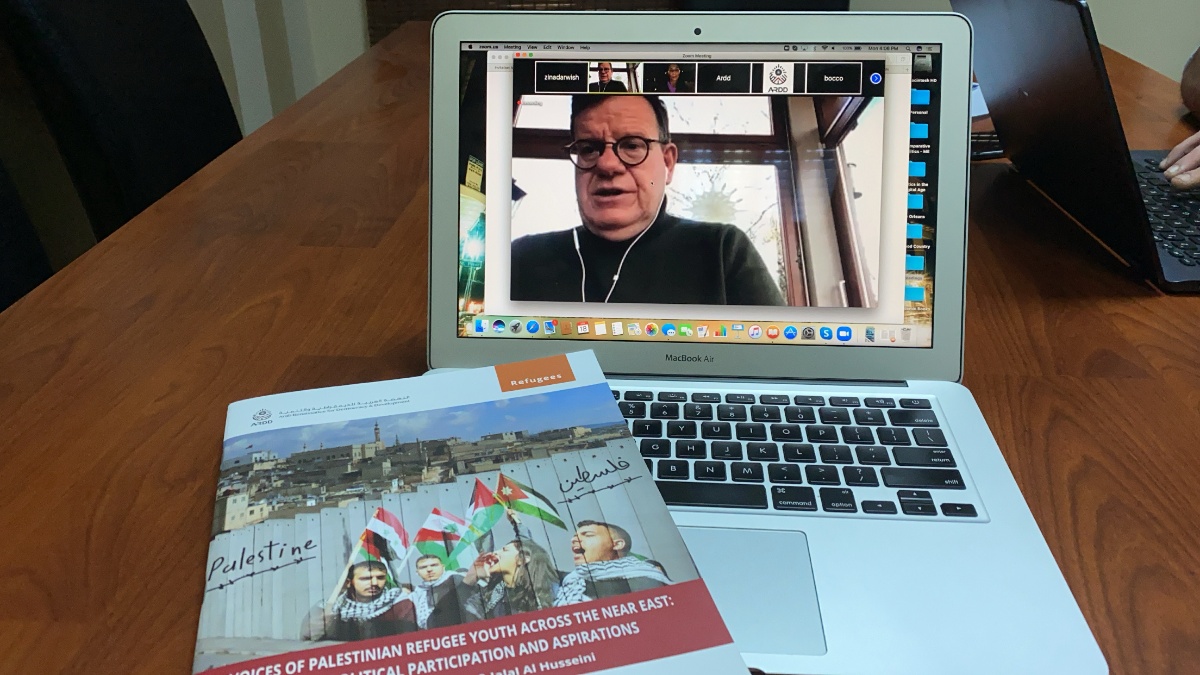The Global Network of Experts on the Question of Palestine (GNQP) held its third online roundtable, Perspectives of Palestinian Youth, on 18 January 2021. Members of the network were joined by a number of representatives from ARDD’s Palestinian youth network to explore the perspectives of Palestinian refugee youth in regard to political engagement and participation, as well as the overall Question of Palestine. The youth participants in the roundtable primarily comprised Palestinian refugees who currently reside in the West Bank, Gaza, Lebanon, and Jordan. The session was moderated by Dr. Lex Takkenberg, a member of the Network’s Steering Committee.
Network member Ms. Francesca Albanese commenced the session by presenting a summary of the 2020 study that she co-authored with Dr. Jalal Husseini, Voices of Palestinian Refugee Youth across the Near East: Socio-Political Participation and Aspiration. The study focused on youth who had been identified as political leaders in Jordan, Lebanon, the occupied Palestinian territory, and Syria in order to discern and explore commonalities in youth perspectives across the sample. Several questions were addressed in the study, including the determinants of social and political mobilization, issues of representation, questions of identity, hopes for the future, and discrimination and marginalization.
Dr. Takkenberg opened the floor for youth representatives and network members to react to the study’s findings. The youth participants addressed several key points, including the guarantee of the right of return in situations of obtaining another nationality, the lack of representation and affiliation with any Palestinian political parties, and the decline of attention to Palestinian issues in lieu of other catastrophes in the Arab world. One representative raised the suggestion for the international community to engage with youth initiatives rather than the government and political parties, who are not representative of the youth nor the people as a whole.
Following this robust discussion, Dr. Takkenberg requested that GNQP members share some of their expertise on the topic. One of the members spoke about similarities among insights from the book “Children of Palestine: Experiencing Forced Migration in the Middle East,” published in 2005, another member mentioned that in a research study she is currently conducting, she has observed parallels between Palestinians displaced during the Nakba and Palestinians who have been displaced from the ongoing war in Syria.
Finally, members offered suggestions to strengthen and disseminate Ms. Albanese’s and Dr. Husseini’s study. Several documentaries that tackle Palestinian youth perspectives, including “194. Us, Children of the Camp” (2017), “The Shebabs of Yarmouk” (2013), “A World Not Ours” (2012), “The Council” (2014), and “When the Boys Return” (2012) were recommended. The closing remarks for the roundtable emphasized the necessity of capacity building and knowledge
sharing and for international actors to recognize the importance of youth outreach.
The fourth online roundtable discussion, Beyond Oslo, will be held on 8 March 2021.


